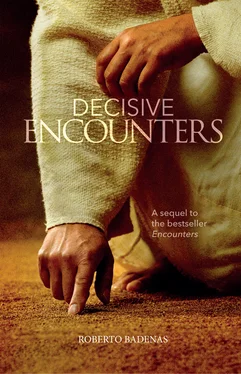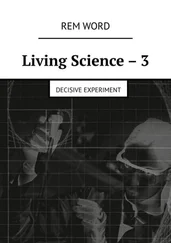23. The executive position that remains open in the corporation appeals to me more than anything in the world. I know very well what I can do to get my boss to give it to me. If someone finds out, maybe they will consider me a typical social climber who flatters his superiors in order to prosper. But what’s at stake is my future. This is my time, and I will not let it go to waste.
24. Aside from these temptations that Jesus told his disciples about, we are not aware of the others, and we can only imagine. “The last temptation of Jesus” was not the one attributed to him in any film or novel, of succumbing to the weaknesses of the flesh, although he was also tempted in that. Jesus was young and he certainly did not lack charm.
25. The apostle James (1:13-15) explains that sin is born (or is “given birth to”) at the end of a process that begins with the enticement of temptation, and it materializes in consummated facts. Given our sinful nature, the more we move closer to that denouement, the closer we are to committing the irreparable.
26. 1 John 2:16 Calls these seductive elements “the lust of the flesh, the lust of the eyes, and the pride of life.” Innumerable forms of seduction lie in wait for us and incite us to make mistakes that distract us from what is truly important and separate us from God.
27. “Be alert and of sober mind. Your enemy the devil prowls around like a roaring lion looking for someone to devour” (1 Pet. 5:8). “It has been said that the devil’s last trick was to spread the report of his own death . . .” (Giovanni Papini, The Story of Christ, p. 50)
28. The Bible says that Jesus was tempted in everything just as we are but that he never sinned (Heb. 4:15). Hence, we must not confuse temptation with sin.
29. “Many look on this conflict between Christ and Satan as having no special bearing on their own lives; and for them it has little interest. But within the domain of every human heart [. . .] the enticements which Christ resisted were those that we find it so difficult to withstand [. . .] the test upon appetite, upon the love of the world and upon the love of display which leads to presumption. These were the temptations that overcame Adam and Eve, and that so readily overcome us.” (Ellen G. White, The Desire of Ages, p. 68)
30. Since we are fallen beings, our victory lies with picking ourselves up each time we fall, and better yet, in not falling again. The only way to defeat temptation is how Jesus defeated it: with the help of the divine power.“Because he himself suffered when he was tempted, he is able to help those who are being tempted” (Heb. 2:18).“Jesus revealed no qualities and exercised no powers that we may not have through faith in Him” (Ellen G. White, Desire of Ages, p. 433). “For unless He met man as man, and testified by His connection with God that divine power was not given to Him in a different way to what it will be given to us, He could not be a perfect example for us” (Manuscript 21, 1895) Seventh-day Adventist Bible Commentary. Washington: 1955, Review and Herald publishing association. “With the same facilities than man may obtain, withstood the temptations of Satan as man must withstand them.” (Ellen G. White, Signs of the Times, June 9, 1898)
31. “Christ, because He was the only man who never yielded to temptation, is also the only man who knows to the full what temptation means.” (C. S. Lewis, Mere Christianity, ch. 11)
32. Luke 4:13 states that the devil left him “until an opportune time.”
33. “Temptation once resisted will give power to more firmly resist the second time; every new victory gained over self will smooth the way for higher and nobler triumphs. Every victory is a seed sown to eternal life.” (Ellen G. White, Testimonies for the Church, vol. 5, 1889, p. 120)
34. Amos Oz, A Tale of Love and Darkness, Madrid: Ediciones Siruela, 2007, p. 376.
1
The Meeting
The peacefulness of the afternoon falls upon the hollow of the valley. The shadows stretch their embrace through the crossroads of the ford and slowly ascend the steep hillsides. The chirping of the cicadas begins to subside; and from the ponds—behind the oleanders in bloom—the croaking of frogs rises in clear notes.
The quavering bleats of flocks returning to their pens slowly fade. From the bramble patches and myrtles arrive the humming sounds of bees, intent on the sickly sweet remains of the last berries. Below, beyond the murmur of the sugar cane fields and the quagmires bristling with reed beds and papyruses, the Jordan meanders, loamy and green.
Two young men wait impatiently, at the crossroads, under the precarious coolness of the willows.
They have arrived at this mystical place, following many other seekers of God. It could be said that at the bottom of this depression—steeped in history, the most sunken in the world, in the void left by major cities struck down by the divine fire1—the distance from heaven pains the most; consequently, the nostalgia of drawing closer to Him is felt the most.
From their precarious observatory, the travelers spot, mounted on the last cliff of the desert, the monastery thereon built by the Essenes, facing the Dead Sea, in order to always maintain, in the monks’ sight, the accursed effects of sin, and to distance themselves from it with their ascetic rites.
If Andrew and his friend were to decide, they could knock on its door that very afternoon and request their admission in the community, giving in to recent temptations. A novice of their age, proudly draping himself in his white robe, had extolled, with a serious frown and an ardent look, the purifying virtues of monastic spirituality:
To rid ourselves of evil, we must withdraw from the world. There is no possible salvation in Israel. Do not listen to its apostate clergy: it deceives you. We are the faithful remnant, those who live by the sanctity that the divine judgment demands. Your corrupt Teachers of the law do not hold the truth. The Teacher of Justice is the only one who teaches it. Keeping its precepts2 is the only path to enter into the kingdom of God.
The young man seemed to be very convinced. Yet, is it not that the kingdom of God can be accessed only by renouncing the risks of life in society? Is it not of cowards to flee from danger? His friends the Zealots, with whom they sometimes met in secrecy, stressed upon them almost the opposite:
We must impose the kingdom of God and build it ourselves, breaking by any means necessary the yoke of the idolatrous oppressor. We have to fight with our own hands, with our own strength, and even with our own blood if necessary, against the enemies of the Lord of hosts if we want the Messiah to come to free us from Rome and from all the evils.
Their friends, the Zealots, were also very sincere and fanatical, brave up to the sacrifice. One of them had died as a martyr, crucified for being a terrorist a short time ago.
Whom to follow? That is the big question that torments the idealist minds of the young travelers. Which path leads to salvation . . . that of a fight to the death against the adversaries of God, or that of isolation from the world?
Foolish dilemma, reply the Sadducees with haughtiness. Heaven belongs only to God. For mortals there is no more “kingdom” than what they get hold of for themselves. The Almighty metes out blessings and punishments in this life because there is no other. He rewards or sanctions according to His sovereign will, without us always knowing the reason for his decisions.
To which the Pharisees claim:
Grave heresy. The Torah clearly indicates the route to follow: God saves through observance of His law. Divine justice will inexorably reveal itself in the coming judgment regarding your conduct in this life. Your actions save or condemn you. After the inevitable death, the supreme Judge decides if the scales of your good actions, prayers, fastings, and charities, surpass the weight of your sins.
Читать дальше












